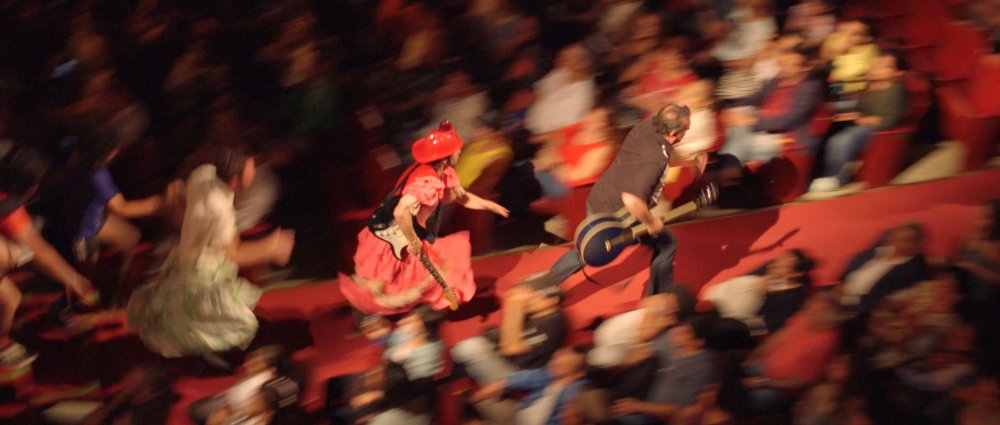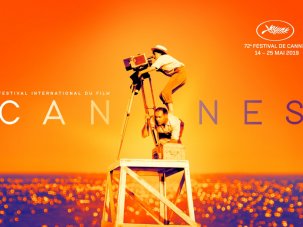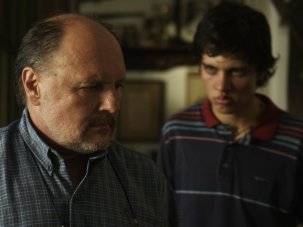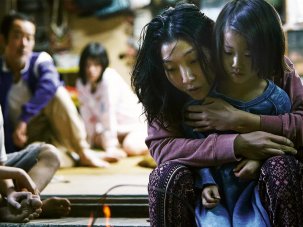Alejo Moguillansky belongs to the Argentine New Wave, alongside such filmmakers as Matías Piñeiro and Mariano Llínas. Their artisanal filmmaking is often marked by robust storytelling that evokes high, as well as popular, literature – from Shakespeare to crime novels – with a humorous approach, and is enacted by young urban indie-film ensembles, with the same actors overlapping in a good number of productions.
Argentina 2019
1hr 19mins
Director Alejo Moguillansky
Cast
Alejo Moguillansky
Gabriel Chwojnik
Luciana Acuña
Matthieu Perpoint
Original Spanish title Por el dinero
► Trailer
What has distinguished Moguillansky lately, however, is his fierce interest in the (mostly dire) commercial side of creative work, in that intricate and tricky relationship between the economics of art and the freedom of the artist, creative or otherwise. His last film, The Little Match Girl (2017), was a poignant dramedy that revolved around a financially-strapped husband and wife (Walter Jakob and María Villar, who’ve also appeared in Piñeiro and Llínas’s films), as the former helps stage a postmodern opera in a Buenos Aires paralysed by massive transit strikes. The film got much of its chutzpah from mining the huge discrepancy between highfalutin postmodernist discourse and the protagonists’ relentless daily struggle to make ends meet, not to mention their puzzlement at the finer points of postmodern art theory (a theme that Moguillansky also deployed, to some extent, with 2013’s The Parrot and the Swan).

Moguillansky’s new film For the Money, which premiered in the Directors’ Fortnight at Cannes, furthers his preoccupations with a recognisable satirical bend: in it, a troupe of Porteño actors stage a variety act about the impossibility of thriving in inflation-wrecked Argentina. They soon figure out that since they are making absolutely no money, despite receiving great reviews – in fact, they are contributing their own meagre savings just to keep the play afloat – their best bet for solvency is to enter the production into a theatre festival. When an invitation comes from Cali, Colombia, they throw themselves into a competitive frenzy and rapidly escalating schadenfreude, in an effort to win the prize at any cost.
Just as the play in the film revolves around financial distress, the entire movie, as its title suggests, is dedicated to surviving the trauma of living on a shoestring… or not. This is no spoiler, since For the Money actually opens with the image of two of the troupe members murdered on the beach, and only then winds back, with the help of a voiceover, to tell us how we got to the crime scene.
Moguillansky this time uses a new tactic for the voiceover, his tale being told by a Frenchman speaking in heavily accented Spanish. The approach adds a delightful cultural clash by drawing on the contrast between the Western, particularly French, economic model of supporting the arts with salaries for artists, and the financial precariousness of the arts in Latin America, and indeed most of the world. We get to know the loveable Argentines through the Frenchman’s eyes; his puzzlement at their antics, but also his genuine admiration for their infectious spirit and their artistic passion, is what makes Moguillansky’s new film such a joyful ride.
-
The Digital Edition and Archive quick link
Log in here to your digital edition and archive subscription, take a look at the packages on offer and buy a subscription.











